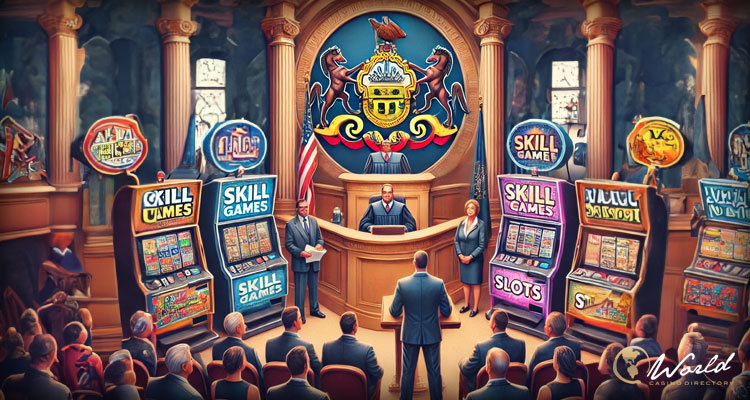In Pennsylvania, a significant legal challenge is emerging as twelve casino owners unite in a lawsuit to contest the state’s tax regime on slot machine revenue. Filed on Monday, this action could potentially disrupt over $1 billion in annual tax revenues, which currently fund property tax rebates and economic development initiatives.
Constitutional controversy and casino claims:
The crux of the lawsuit lies in what the casinos argue is an unequal taxation policy. The state levies a substantial 54% tax on casinos’ slot machine revenues. In contrast, revenue from skill game terminals—cash-paying electronic games located in bars and stores—remains untaxed. These skill games are not subject to the same stringent regulations as casino operations.
“There is no basis for requiring licensed entities to pay about half of their slot machine revenue to the Commonwealth while allowing unlicensed entities to pay no tax on such revenue,” assert the casino owners in their legal filing. They are seeking a court ruling to either standardize the tax rate across all similar gaming platforms or to eliminate the slot machine tax altogether.
This legal action involves major players in the casino industry, including renowned companies like Caesars Entertainment Inc. and Penn Entertainment Inc. The implications of this lawsuit extend beyond the parties directly involved, as Pennsylvania’s approach to gaming taxation is historically unique due to its high revenue intake from casinos—more than any other state in the U.S., as reported by the American Gaming Association.
The lawsuit’s outcome might hinge on another ongoing case being deliberated by the Pennsylvania Supreme Court. This related case involves Pace-O-Matic Inc., a manufacturer of skill games, and the state attorney general’s office. The controversy revolves around whether these skill games constitute unlicensed gambling machines, which would necessitate their removal from non-casino venues.
A previous ruling by a lower court determined that Pace-O-Matic’s machines require player skill rather than mere chance, distinguishing them from traditional gambling devices regulated by state laws. However, the state has consistently treated these machines as illegal gambling devices subject to police seizure.
Evaluating the state’s position:
As the debate over how to regulate and possibly tax these devices continues among state lawmakers, the precise number of skill game terminals remains uncertain. Estimates suggest there are at least 67,000 such terminals throughout Pennsylvania, surpassing the number in any other state.
Meanwhile, casinos maintain about 25,000 regulated slot machines. Last year alone, gamblers wagered close to $32 billion on these machines, with losses totaling over $2.4 billion—a revenue that is split almost evenly between the state and the casino operators.
While the Pennsylvania Department of Revenue has opted not to comment on the ongoing lawsuit, the Pennsylvania Gaming Control Board has acknowledged its awareness of the lawsuit and is currently assessing the situation, as the Associated Press (AP) reports.



